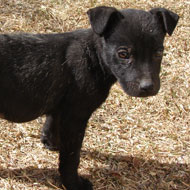Dog euthanasia sets "a dangerous precedent"

Prof. Michael Day warns of increasing concerns about the role of dogs in ebola transmission.
A global veterinary organisation has called for dogs exposed to the ebola virus to be tested and quarantined, not automatically euthanised, in countries where the disease is not endemic.
The call follows the euthanasia of a dog belonging to a Spanish nurse who became infected with ebola.
The case sets a dangerous precedent, according to Dr Shane Ryan, chair of the World Small Animal Veterinary Association's (WSAVA) Animal Wellness and Welfare Committee. Automatic euthanasia is "both unnecessary and a significant breach of animal welfare," he says.
A court order to euthanise the pet dog was obtained by the Madrid regional government. It claimed "available scientific information" could not rule out "a risk of contagion". The dog was destroyed on October 8, against the wishes of its owners. According to Dr Ryan, the dog was not tested for ebola.
Professor Michael Day, chairman of WSAVA's One Health Committee, has warned that the veterinary profession "must respond to pressure to euthanise pets as the exposure levels increase and fear escalates".
While there is no scientific evidence to suggest ebola has been transmitted by dogs, Prof Day predicts "increasing concern and media interest as to the role of dogs in the transmission of disease" as ebola spreads to new areas.



 The Veterinary Medicines Directorate (VMD) is inviting applications from veterinary students to attend a one-week extramural studies (EMS) placement in July 2026.
The Veterinary Medicines Directorate (VMD) is inviting applications from veterinary students to attend a one-week extramural studies (EMS) placement in July 2026.